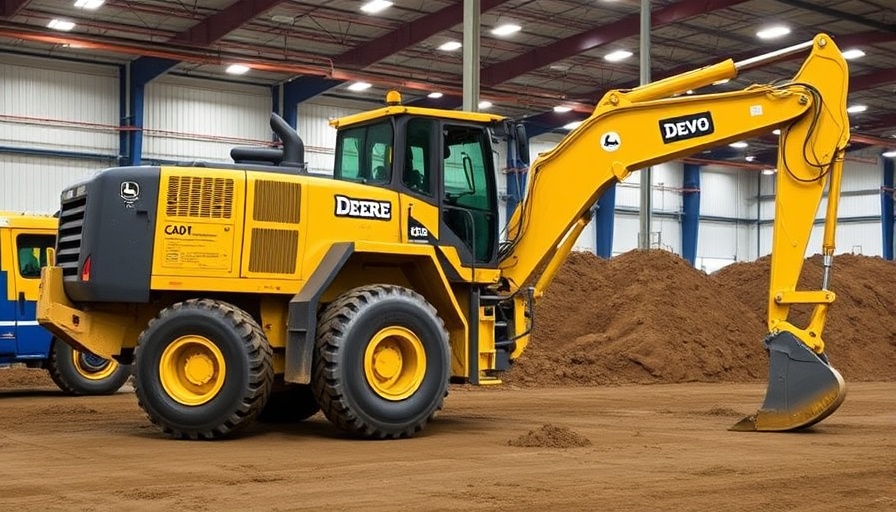
Expansion Plans: A Boon for the Construction Sector
In a pivotal move for the construction equipment industry, industry giants Deere & Company and Volvo Construction Equipment have announced expansions in U.S. production. As demand for infrastructure development surges, these companies seek to ramp up manufacturing, aligning closely with the rising needs of the commercial construction sector, where efficiency and cost management remain paramount.
Automation and Innovation Drive Efficiency
The expansions are not just about quantity; they underscore a larger trend toward integrating advanced technologies in construction. With a keen eye on optimizing project management, both Deere and Volvo are expected to bolster their focus on automation and sustainable practices. This transition is less about machinery moving more dirt and more about smarter, speedier outputs that ensure projects are completed on time and within budget.
Strategic Locations for Future Growth
New production sites are being strategically placed to capitalize on logistics advantages, minimizing transportation costs and lead times. This geographical consideration is crucial, allowing construction companies easier access to the latest technologies and equipment. Furthermore, local sourcing can boost community development, creating jobs while sustainably managing resources.
Embracing Local and Global Perspectives
It's interesting how local expansions reflect global economic trends. As the U.S. construction market emerges from the shadows of economic uncertainty, companies like Deere and Volvo are making essential investments—enabling them to not only cater to domestic needs but also serve international markets. This expands their horizons for business and partnership opportunities.
Looking Ahead: Predictions for the Equipment Industry
As these enhancements unfold, industry experts predict a significant uptick in the demand for top-notch construction equipment. With a push towards sustainable building, innovative machinery that minimizes emissions will become increasingly vital. The future looks bright for manufactures who are poised to offer refined machinery backed by sustainable practices and smart building technologies.
Your Role in This Ongoing Transformation
As clients in the construction industry, understanding these developments positions you to make informed decisions. Keeping abreast of emerging technologies and the motivations behind these expansions equips you with a competitive edge. Imagine you’re not just constructing buildings, but contributing to a smarter urban landscape.
The landscape of construction is changing rapidly, and as companies like Deere and Volvo innovate their production processes, it’s critical for you as a client to adapt. Analyze your strategies for the upcoming projects; the integration of new technologies in construction machinery could lead to significant operational improvements. Don't just follow trends—lead them!
 Add Row
Add Row  Add
Add 




Write A Comment